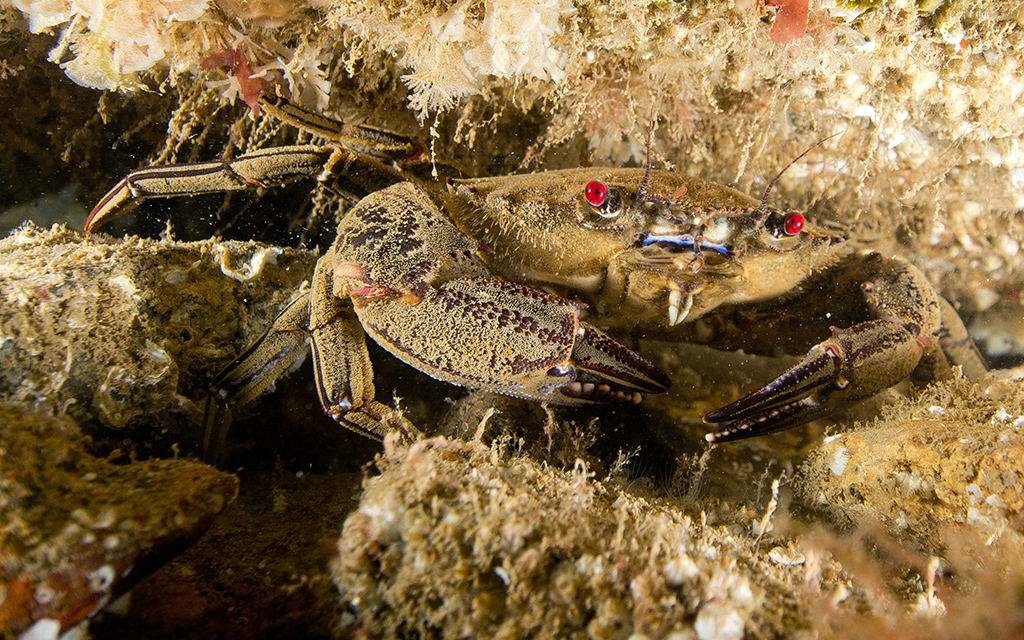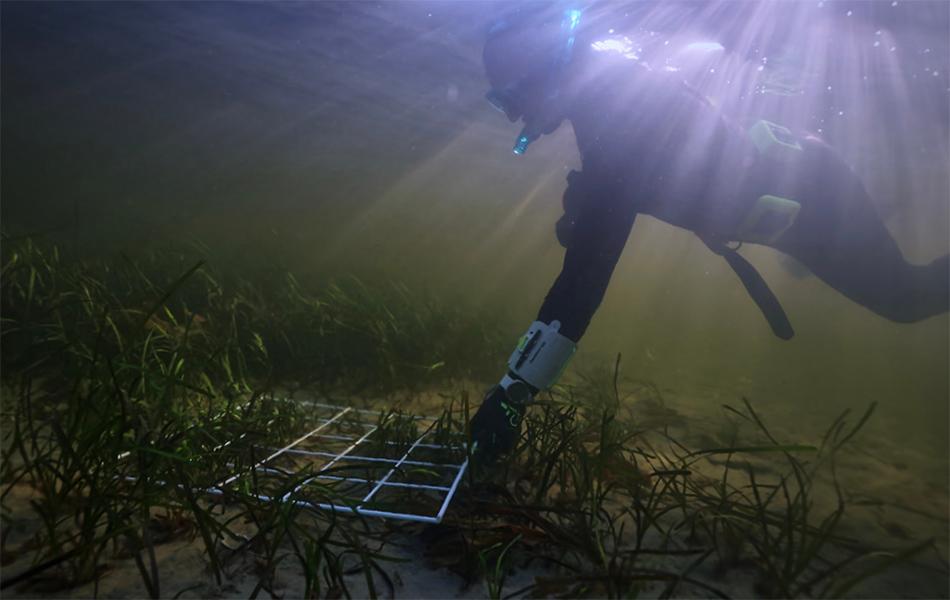
Our seas may be changing, but tracking the changes can prove challenging. Kirsty Andrews consults an expert on the subject.
I was talking all-things-underwater recently with a non-diving friend and she asked me whether on my travels I’d seen any evidence of climate change. I talked about differences I’d personally noticed on my most recent trips: coral bleaching caused by temperature change and ocean acidification; warming waters causing behaviour differences from marine megafauna onwards; changes to the patterns of ocean currents and their impacts.
She also asked me whether I’d noticed any differences in UK waters as a result of climate change, that one was harder to answer. I’m very conscious of being insufficiently qualified to give an informed opinion, and the dangers of sweeping statements. I also don’t feel that the changes are as obvious. But then, I am as well placed as anybody to investigate this: I dive in UK waters all year round, and have a back catalogue of years’ worth of photos, the vast majority of which sit on my hard drive to no purpose.
plumose anemones (a relatively long-lived UK anemone) have noticeably declined in in-shore areas of mainland southwest England over the past five or more years
I’ve talked in this column before about the great work done by Seasearch, the citizen science arm of the Marine Conservation Society. Taking the Seasearch Observer course and filling in dive reports with them is one measurable way to contribute to the pantheon of knowledge of our home waters and their inhabitants. It’s not the only way though, for those of you who haven’t quite managed to work up the enthusiasm for regular form-filling.
Last week I exchanged messages with Dr Keith Hiscock of the Marine Biological Association, as he was putting together his annual report ‘The State of South-West Seas’. He collates reports from a range of sources over the year and comments on topics such as increases or decreases of abundance in certain species, range extensions and, as he puts it, ‘curiosities that have popped up’.
One of Keith’s observations this year was that plumose anemones (a relatively long-lived UK anemone) have noticeably declined in in-shore areas of mainland southwest England over the past five or more years. Looking at a photo of the same section of the Scylla wreck taken in 2011 and 2020, it is undeniable that where once were many plumose, now there are none. Funnily enough, a couple of friends had mentioned to me a while ago that they were shocked to rarely spot them in this area these days, but I’d thought not much about it until Keith asked me. I perused my recent photos and, by themselves, they didn’t tell much of a story, but combined with others’ observations, a picture begins to form.
The flipside of this, of course, is that when I excitedly tell Keith of my latest new-to-me species find, he sometimes reminds me that (in the case of the super-cool slipper lobsters I finally saw last year) that they’ve been reported in UK waters since 1758 and that 37 individual reports have been made between 1999 to 2020. Not to worry, I’m still thrilled to see them and won’t hesitate to share my next observations, whether unusual or not.
I’m sure Keith will welcome your own contributions in tracking the ‘state of our seas’. He tells me that he sees his role as an editor to track links from various sources and ‘tell the story’, but that any diver including those contributing “does anyone know what this is?” images can make a valuable contribution. Where to start? Maybe with some of the charismatic noticeable species such as spiny lobsters, ringneck bennies, feather duster worms, unusual sea slugs, common octopus, sea anemone shrimps… the list goes on. Keep your eyes peeled and don’t forget to pass on your findings, not just in the pub but to khis@mba.ac.uk
Article ‘Eyes under the sea’ by Kirsty Andrews first published in SCUBA magazine, Issue 145 May 2024.




